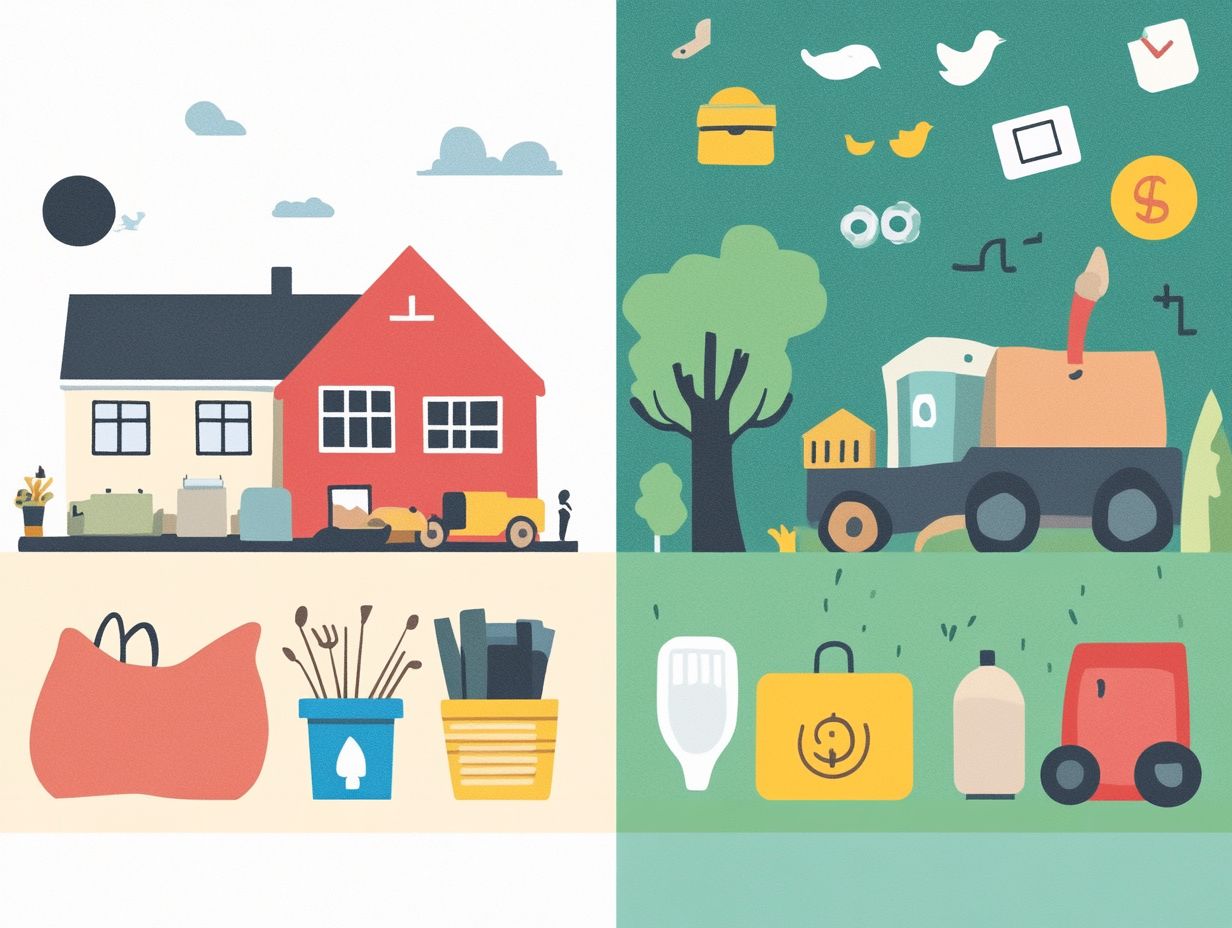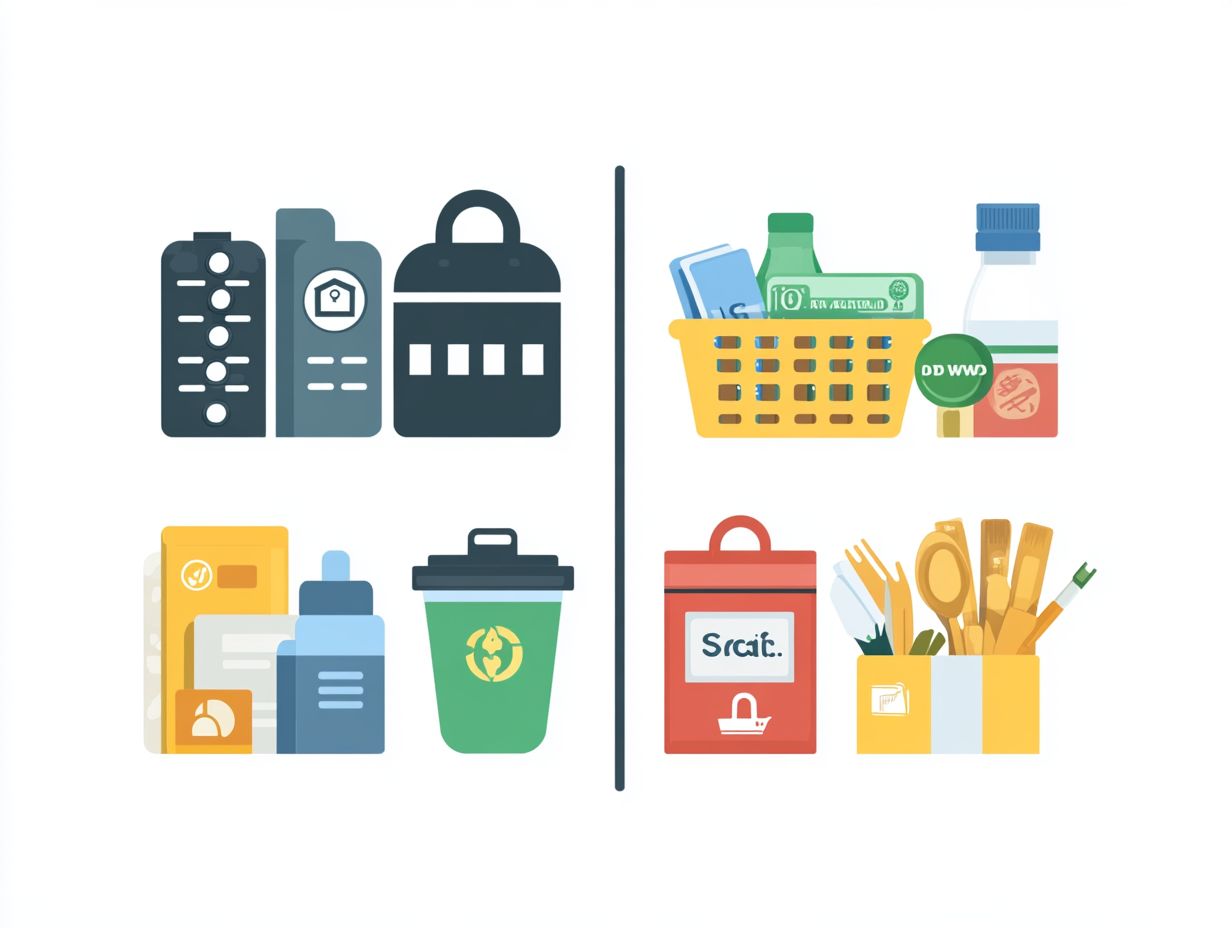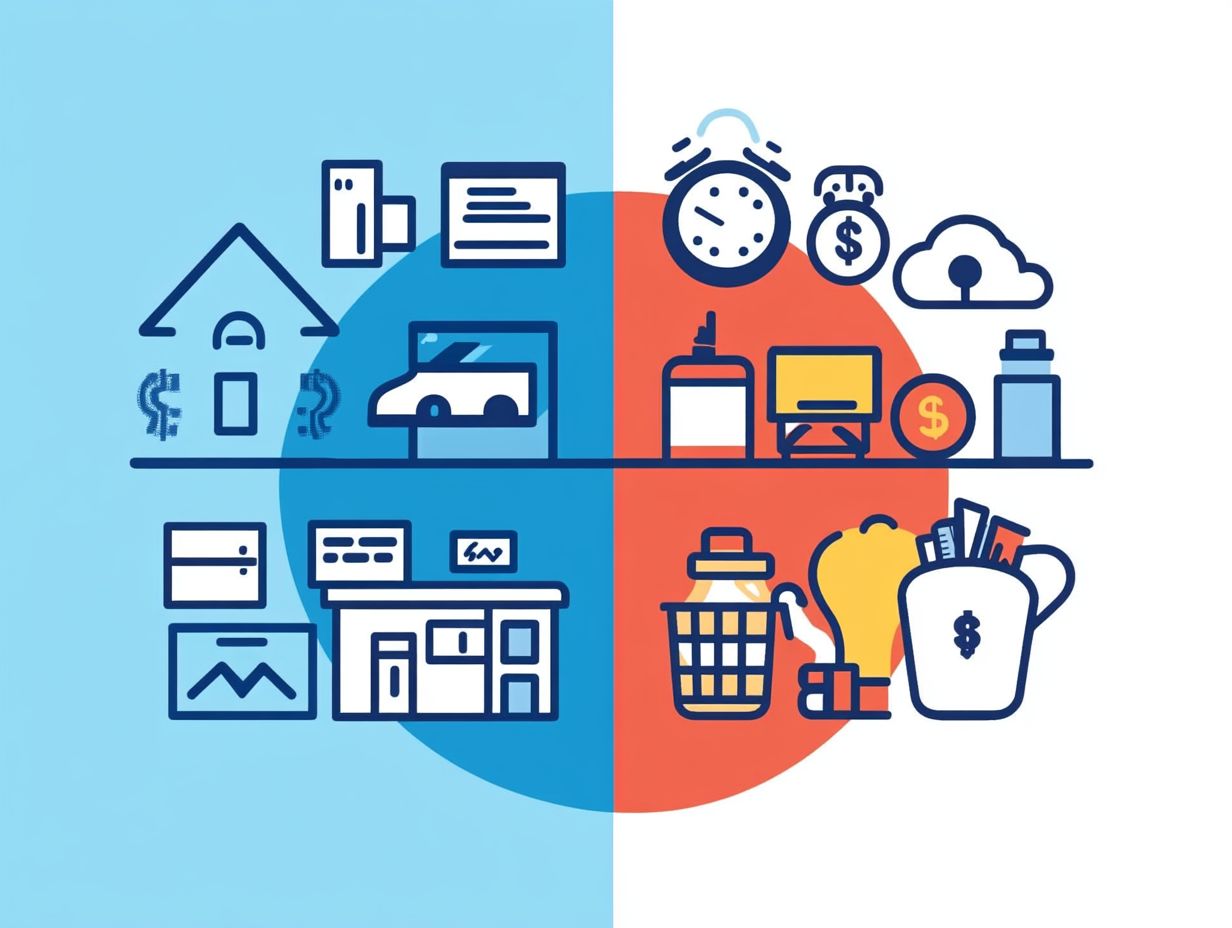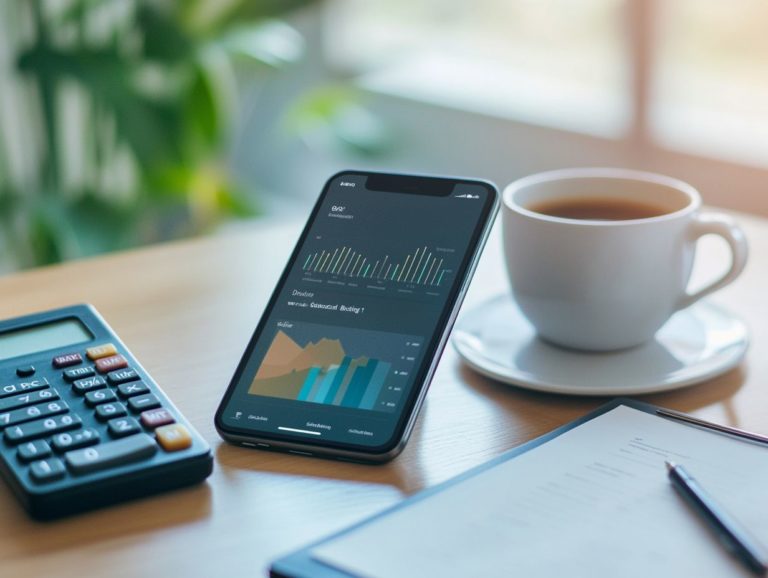What Are Fixed and Variable Expenses?
Managing your finances effectively begins with grasping the distinction between fixed and variable expenses.
Fixed expenses, such as rent and salaries, remain steady month after month. Variable expenses, like groceries and entertainment, can fluctuate significantly. This discussion will clarify these terms, highlight their differences, and present practical examples to enrich your financial literacy.
It will also explore effective budgeting strategies, tracking expenses, and offer tips for reducing costs. Master these concepts to take control of your finances!
Contents
Key Takeaways:

- Fixed expenses are costs that remain unchanged each month, like rent or a car payment.
- Variable expenses can fluctuate, such as groceries and entertainment.
- Cut costs by negotiating bills, finding cheaper options, or reducing unnecessary spending.
Understanding Fixed and Variable Expenses
Grasping the distinction between fixed and variable expenses is essential for mastering your budgeting and financial planning.
Fixed expenses are steadfast costs that stay the same each month, such as mortgage payments, car loans, and insurance premiums. In contrast, variable expenses can change, covering optional expenses like entertainment, grocery shopping, and utility bills.
By understanding these differences, you can craft a well-balanced monthly budget that aligns perfectly with your financial aspirations.
Defining the Terms
Fixed and variable expenses are fundamental concepts in budgeting, each representing distinct types of financial obligations you need to grasp.
Understanding the difference between these categories is essential for your effective money management. Fixed expenses are those recurring costs that remain constant from month to month think mortgage payments, car loans, and health insurance premiums. These predictable financial obligations enable you to plan your budget with confidence.
In contrast, variable expenses include costs that fluctuate, such as groceries, dining out, and entertainment. While you might spend a consistent amount on your mortgage, your grocery bills can vary significantly based on your family s needs or special occasions. This insight is invaluable for crafting a balanced financial strategy that works for you.
Differences Between Fixed and Variable Expenses
Understanding the distinctions between fixed and variable expenses can profoundly influence your budgeting approach and overall financial strategy. These differences affect how you allocate your income and manage your spending limits, guiding you toward more informed financial decisions.
Examples and Characteristics

Examples of fixed expenses include your mortgage payments, car payments, and insurance premiums. Variable expenses can encompass everything from grocery shopping to your streaming services.
When you re budgeting, grasping these spending categories is essential for managing your finances effectively. Fixed expenses, such as rent or student loans, are predictable and typically remain stable from month to month, making them easier to plan for.
On the other hand, variable expenses can fluctuate based on your choices and consumption patterns, like clothing purchases or dining out. This variability grants you the flexibility to adjust your budgeting strategies, enabling you to allocate funds more effectively.
For instance, you might decide to cut back on entertainment to save for an unexpected expense, demonstrating how tweaking your variable expenses can enhance your overall financial health.
Start tracking your expenses today to see where you can save!
How to Manage Fixed and Variable Expenses
Effectively managing both fixed and variable expenses demands a simple budgeting plan.
By incorporating diligent expense tracking and thoughtful financial planning, you can ensure that your spending aligns seamlessly with your financial goals.
Budgeting and Tracking
Budgeting and tracking are fundamental to effective financial management. They empower you to make informed decisions about both fixed and variable expenses.
By adopting strategies like the 50/30/20 rule which means spending half of your income on needs, a third on wants, and saving the rest you can craft a balanced financial plan that works for you.
Keeping a vigilant eye on your spending limits not only supports your financial goals but also cultivates a profound sense of control over your finances.
You have access to a variety of tools, from intuitive budgeting apps that simplify the process to detailed spreadsheets that provide deeper insights, all designed to help you track your expenses efficiently.
Regularly monitoring your finances helps you spot trends and make necessary adjustments, ultimately paving the way for long-term stability.
Benefits of Knowing Your Fixed and Variable Expenses
Understanding your fixed and variable expenses offers significant advantages for your financial planning. This knowledge empowers you to craft a more effective budget, paving the way for you to achieve your financial goals with precision and confidence.
Financial Planning and Decision Making

Effective financial planning and decision-making become significantly more robust when you grasp the difference between fixed and variable expenses. This understanding allows you to make informed choices about your spending and saving.
By closely examining these costs, you can pinpoint essential expenditures that deserve priority and those that can be tweaked or trimmed. This distinction not only helps you craft effective budgeting strategies but also empowers you to allocate a portion of your income to savings accounts specifically tailored for emergencies or future aspirations.
Recognizing recurring expenses alongside potential discretionary spending encourages you to make smarter financial decisions. This awareness enables you to implement cost-saving strategies, like negotiating your bills or cutting out unnecessary subscriptions, ultimately nurturing a healthier financial future.
Tips for Reducing Fixed and Variable Expenses
Ready to reduce your fixed and variable expenses? Let s dive into some smart strategies!
You can effectively reduce both fixed and variable expenses by implementing strategic cost-reduction techniques and practicing meticulous budgeting.
This approach will ultimately enhance your financial health and set you on a path toward greater stability and success.
Cost-Cutting Strategies
Implementing effective cost-cutting strategies can significantly reduce both your fixed and variable expenses, allowing you to stay within your budget and achieve your financial goals.
Identify where you can save. Start by negotiating utility bills or finding better service providers to lower fixed costs.
Regarding variable expenses, take a closer look at your recurring subscriptions; you might uncover unnecessary expenditures that can easily be eliminated, freeing up cash for savings or investments.
Adopting a mindful spending approach where every purchase is evaluated for its value and necessity will enhance your budgeting efforts. By prioritizing your costs effectively, these strategies can contribute to a healthier financial picture, empowering you to allocate your resources more efficiently.
Frequently Asked Questions
What Are Fixed Expenses?

Fixed expenses are regular bills that don t change each month, like rent or mortgage payments, insurance premiums, and subscription services.
What Are Variable Expenses?
Variable expenses are costs that change each month. Common examples include groceries, utility bills, and entertainment.
What is the Difference Between Fixed and Variable Expenses?
Fixed expenses stay the same, while variable expenses can vary. Fixed expenses are often essentials, while variable expenses offer more flexibility.
Why is it Important to Understand Fixed and Variable Expenses?
Knowing the difference helps with budgeting. It lets people make better decisions about spending and saving.
Can Fixed Expenses Become Variable Expenses?
Yes, fixed expenses can turn variable. For instance, if you cancel your gym membership, that cost becomes flexible.
How Can I Reduce My Fixed and Variable Expenses?
To lower fixed expenses, negotiate better rates with service providers or downsize your living space.
Track your spending to cut back on non-essentials and find cheaper options for variable expenses!






